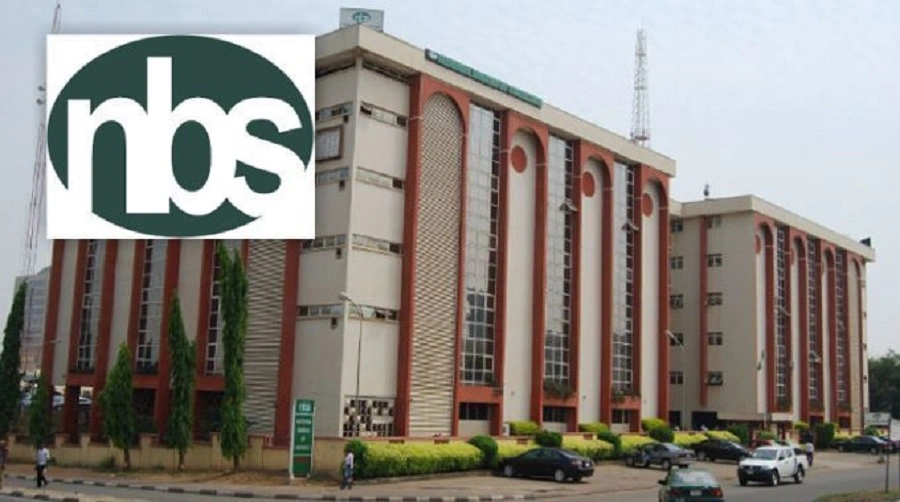The National Bureau of Statistics (NBS) has chosen 2019 as the base year for the rebasing of Nigeria’s Gross Domestic Product (GDP).
The decision to select 2019, the NBS stated, was due to the relative “economic stability” compared to recent years.
Technical Assistant to the Statistician General, Moses Waniko disclosed this on Thursday during a sensitisation workshop on GDP and the Consumer Price Index (CPI) rebasing, organised by the Nigerian Economic Summit Group and the NBS in Lagos.
He disclosed that the newly rebased Gross Domestic Product (GDP) figures will be unveiled by the end of January.
- Yuletide: Tourism, entertainment sectors generates N111.5bn in Lagos
- Auto policy: Will Tinubu renew the hope of stakeholders?
Daily Trust reports that GDP rebasing is the process of replacing an old base year with a more recent base year to keep up with the evolution in prices.
It would be recalled that the NBS in October 2024 announced plans to rebase the GDP and CPI to reflect current realities and capture structural changes in the economy.
Our correspondent reports that the last time the economy was rebased was in 2010 which is 14 years ago as against five years recommended by the United Nations Statistical Commission (UNSC).
In addition to rebasing the GDP, the NBS also plans to introduce three new indexes in the monthly Consumer Price Index (CPI) also known as inflation report.
Waniko while explaining the proposed rebasing stated that 2020, 2021 and 2022 were avoided due to the economic volatilities experienced at the time, adding that 2019 was selected because “Other sector-specific administrative data for this period were collected.”
He said, “Some major surveys that served as inputs into the rebasing covered this period. 2020, 2021 and 2022 were avoided as base years due to economic instabilities – this follows IMF guidelines.”
Waniko further explained that the data collection process is nearing completion. However, the results will still need to undergo validation before the official launch at the end of the month.
Waniko stated, “We’re currently concluding the rebasing. We need to validate the results and then we have to do a launch; we are looking at the end of January to do that launch, to disseminate the numbers, and then, usually, there are post-rebasing activities that will happen.”
He stressed the imperative of rebasing on the nation’s economy, saying, “It is good to look at the rebasing from different angles, not just the aggregate numbers, but to look at what those numbers are supposed to tell us, in terms of the distribution, the aggregate numbers, in terms of their weights, contributions and the rest.
“Beyond that, there are other implications for the national economy, which we have tried to put in this slide. The first is rebasing will provide or allow for an Economic and Development Plan.
“The second is that the rebasing will really help to provide a good trajectory for the economy. So beyond this, it’s important to also state that after the rebasing, there are certain things that we expect that might change, such as changes in the size of the structure of the economy.
“We expect that the size of the economy will be bigger.”
Waniko noted further, “The tax-to-GDP ratio is something that people may want to see what the numbers would look like. Debt to GDP ratio of 18.5 per cent as of September 2019 could also reduce with the bigger size of the GDP, and then per-capita income will increase after the rebasing.”
On his part, the head of Price Statistics at the NBS, Dr. Ayo Andrew, listed the new indexes to be included in the rebased CPI.
He said, “Apart from our normal headline inflation, core inflation, food inflation; the basics, we are going to include in the new CPI rebased that will be released this January another index that has never been released before.
“Number one is the services index. At what rate are the prices of services in Nigeria increasing? People want to know about (those figures) in education and transport.
“NBS will bring that on board by the end of this month. Also energy index, at what rate is price fluctuating in this sector?
“Farm produce index, what is the rate of price volatility of these products, and at what rate are prices of items in this sector moving? So, these are the special indices that we are going to release at the end of this month.”

 Join Daily Trust WhatsApp Community For Quick Access To News and Happenings Around You.
Join Daily Trust WhatsApp Community For Quick Access To News and Happenings Around You.


